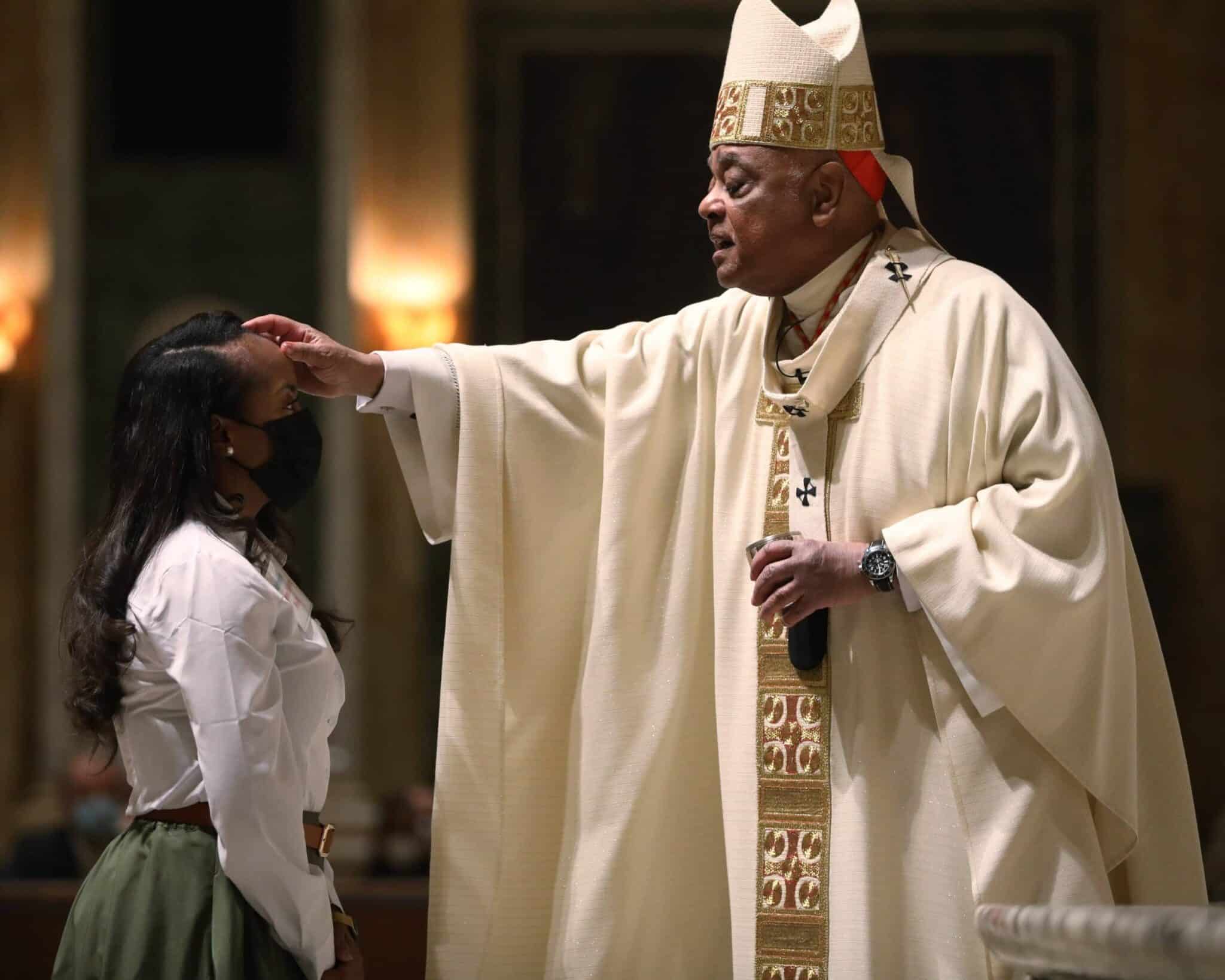It has been said that Confirmation is a sacrament looking for a theology. The implication is that we don’t have a clear understanding of what it is about, especially since it has been separated from Baptism and often received after first Communion. But that isn’t entirely accurate. There are issues, I admit, but we still have a pretty good idea of what the sacrament is about.
Confirmation is considered a sacrament of initiation. That tells us that Confirmation has something to do with our being introduced into the life of God and of the Church. The first initiation was Baptism, when we were adopted by God and welcomed into the family of the Church. Baptism set us on the path to eternal life, and got things started. Confirmation intensifies that beginning and blesses us with the gifts of the Holy Spirit. Therefore, we might call it “stage two” of our becoming God’s children.
Gestures and Symbols
To emphasize the larger community of faith, Confirmation is usually conferred by the local bishop. The ritual consists of the laying on of hands, the anointing on the forehead with sacred chrism, and the words, “Be sealed with the gifts of the Holy Spirit.” Like the other sacraments, it’s a simple action, using an appropriate object (oil and the laying on of hands), accompanied by simple words. And the ritual is guaranteed its significant meaning by the presence of our God infusing us with the gifts of the Holy Spirit.
The laying on of hands and the anointing with oil are not actions that immediately resonate with us modern folk. In ancient cultures, a person in authority placed his hands on another’s head in a gesture of both setting that person aside for a specific task and of conferring the power of an office. In Confirmation, the bishop and attending priests lay their hands on the head of the person to be confirmed as a sign of selection and of giving the Holy Spirit.
Sacred chrism is olive oil (the same oil that is used for cooking) with a sweet perfume added (usually balsam) to give it an aromatic quality. The scent is intended to involve another sense: smell. The oil is consecrated at the Chrism Mass by the bishop during Holy Week. (At that same Mass, the bishop also blesses the Oil of Catechumens, used in Baptisms, and the Oil of the Infirm, used in the Anointing of the Sick.) Anointing with oil is another sign of setting someone aside for a specific task as well as a sign of strength.
Today, we might use Bengay or some analgesic if we have sore muscles, or a steroid if we want to strengthen our body. But athletes of old rubbed oil on themselves to strengthen or heal their muscles. And many cultures of old anointed their kings and queens and religious officials into office (England still does).
So, reading the gestures and symbols and listening to the words, we get some idea of what it is that God does for the newly confirmed person—sets them aside for a special task and strengthens them for their new mission with the presence of the Holy Spirit.
Confirmation: Gifts of the Spirit
Giving the Holy Spirit includes filling the individual with the seven gifts of the Spirit. These are: wisdom, understanding, counsel, knowledge, fortitude, piety, and fear of the Lord. Let’s take a quick look at each.
Wisdom is the ability to properly value our faith. To put life in proper perspective.
Understanding helps us realize the meaning of what we believe—at least to some significant degree.
Counsel helps us act in the best way possible.
Fortitude gives us the strength to do what we know we ought to do.
Knowledge helps us see life as God sees it.
Piety helps us desire to worship and serve God.
Fear of the Lord helps us want to serve God well out of a sense of respect.
These are on-going aids given by God through his Church to those being confirmed to strengthen them for the task of being witnesses of faith to the world. So, Confirmation involves a commissioning, a sending, and a strengthening; all necessary for the person to take their proper place in the faith community. “Be sealed,” the bishop says, “with the gifts of the Holy Spirit.”
Be sealed, be stamped, be marked with the Holy Spirit for life as a beloved son or daughter of God. With the strength of that seal, go out and witness to the world.

